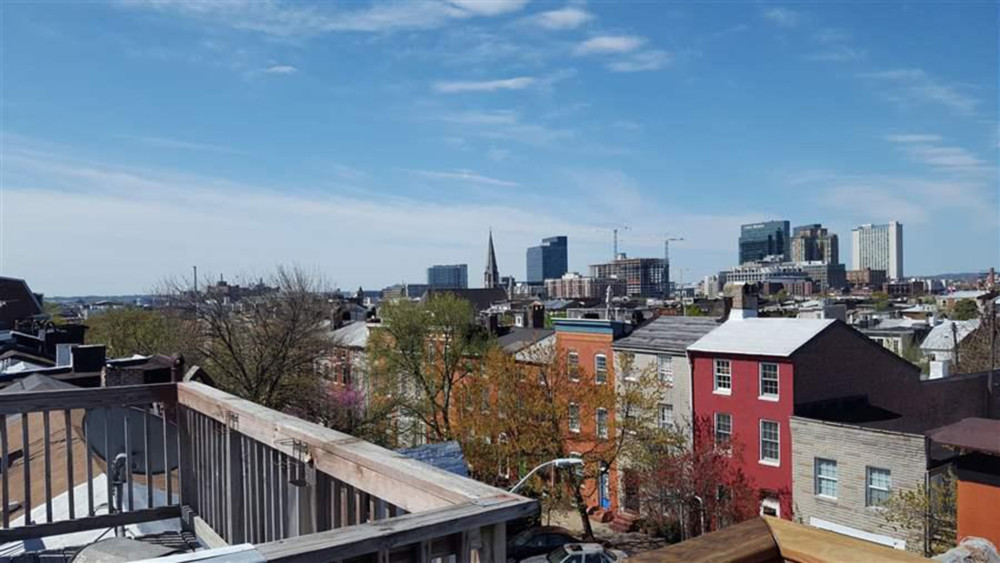By Hallie Miller
The Baltimore Sun
WWR Article Summary (tl;dr) According to a recent study published by LendingTree, single women in Baltimore own about 24 percent of all owner-occupied homes in the city, outnumbering single male homeowners, who account for about 11 percent.
The Baltimore Sun
When Pigtown resident McKenzie Allen lived in Philadelphia, she likened her rented apartments to a comedy of errors. The water heater broke. A leak filled the ceiling with water until it cracked, bursting into the room below.
“Not that I’m a control freak, but I hate that you don’t have the control to just take care of things when things come up,” Allen, 30, said.
So when Allen moved to Baltimore in 2017, she jumped at the opportunity to buy a home instead of lease a temporary one. She joined some 167,000 other unmarried female homeowners who opted to take on mortgages in the city, where the share of single women owning homes exceeds not just single men but also the national average.
In Baltimore, single women own about 24 percent of all owner-occupied homes in the city, outnumbering single male homeowners, who account for about 11 percent, according to a recent study published by LendingTree.
Nationwide, single women tend to own about 22 percent of overall owner-occupied homes, with unmarried men owning about 13 percent.
Among the 50 largest cities in the U.S., Baltimore has the ninth largest gender gap in homeownership, according to the study. Baltimore trails New Orleans, Miami, Birmingham, Ala., Richmond, Va., and Philadelphia, among others.
Demography experts said the homeownership gender gap in Baltimore reflects not just a national trend, but a global, social phenomenon as well.
Kris Marsh, an associate professor of sociology at the University of Maryland, said women today likely no longer feel bound by traditional gender roles in the economy: In previous generations, she said women felt compelled to start families before buying homes.
“It’s a new narrative. Women are seeing how they can do it on their own,” Marsh said. “They’re not waiting for marriage. They’re saying, ‘I don’t need the other stops on the life station to buy the home.’ ”
Tendayi Kapfidze, the LendingTree economist behind the study, said several economic factors might also explain the homeownership gap, including women’s tendencies to avoid high-risk investments.
He said the Baltimore region provides more opportunities for singles to forge their own paths in the housing market.
“Where we have the highest rates of [single] homeowners, these are all cities that are relatively affordable compared to other large cities,” Kapfidze said. “Being single is not a hindrance to owning a home, but certainly more affordable cities allow you to do that.”
In Baltimore, the median home sales price was $129,400 in December, up from $124,000 a year earlier, according to analysis from Zillow, a real estate information service. Zillow projects Baltimore home values to rise 6 percent by December 2019.
But with the national median sales price at $229,800, Baltimore remains comparatively affordable, especially relative to Washington’s $546,900 median home sales price.
Baltimore’s housing market attracted Cindy Plackmeyer from Pittsburgh three decades ago. She bought her first home in Canton in 1987 with help from a Community Development Administration loan. Often referred to as a CDA loan, such mortgages provide eligible buyers in the state with a low, fixed interest rate, inexpensive down payment and other financial incentives to purchase their residences.
buy professional pack online myhst.com/wp-content/themes/twentytwentytwo/inc/patterns/en/professional-pack.html no prescription
“It was a gift, it made perfect sense,” Plackmeyer, 57, said. “It was like, I don’t need to make a lot of money to do this.”
In Georgiana Tyler’s experience as a broker for Coldwell Banker in Baltimore, singles interested in buying homes tend for look for properties where they feel comfortable managing everything from maintenance needs to taxes, interest and other expenses, she said.
“They lean toward condos and townhouses, which by virtue of size, don’t require a lot of upkeep,” she said. “And they want to go someplace where they have an opportunity to meet other people,” she said, adding that Maryland’s affordability and its proximity to Washington, Philadelphia and New York make it especially attractive for young people looking to settle down.
Chelsea McIntyre, a 33-year-old veterinarian and a current Woodberry resident, said buying a home in Baltimore has helped her feel more connected to her community compared with other experiences as a renter.
“I thought a lot of my income was going toward rent, and I had nothing to show for it,” the first-time homeowner said.
Now, about two years into her homeownership, McIntyre said she’s grateful to have long-term stability.
“I felt like I was old enough to know that this was a job I was going to keep and I could invest time in one place,” she said.
But for East Baltimore homeowner Imani Newsome, homeownership as a single female has come with its fair share of nuisances. While she appreciates having her home as an investment, she said the experience also entailed a steep learning curve and long adjustment period.
“I miss having maintenance on call to take care of things,” Newsome, 29, said. “Different things have popped up that I have no experience with. And it’s hard to know who to call and who you can trust because everybody is out for money.”
Newsome said she may go back to renting or leasing some day. But for now, she’s learning to appreciate the silver lining of her homeownership.
“I like the independence,” she said. “But the other stuff, I could do without.”














































































































































































































































































































































































